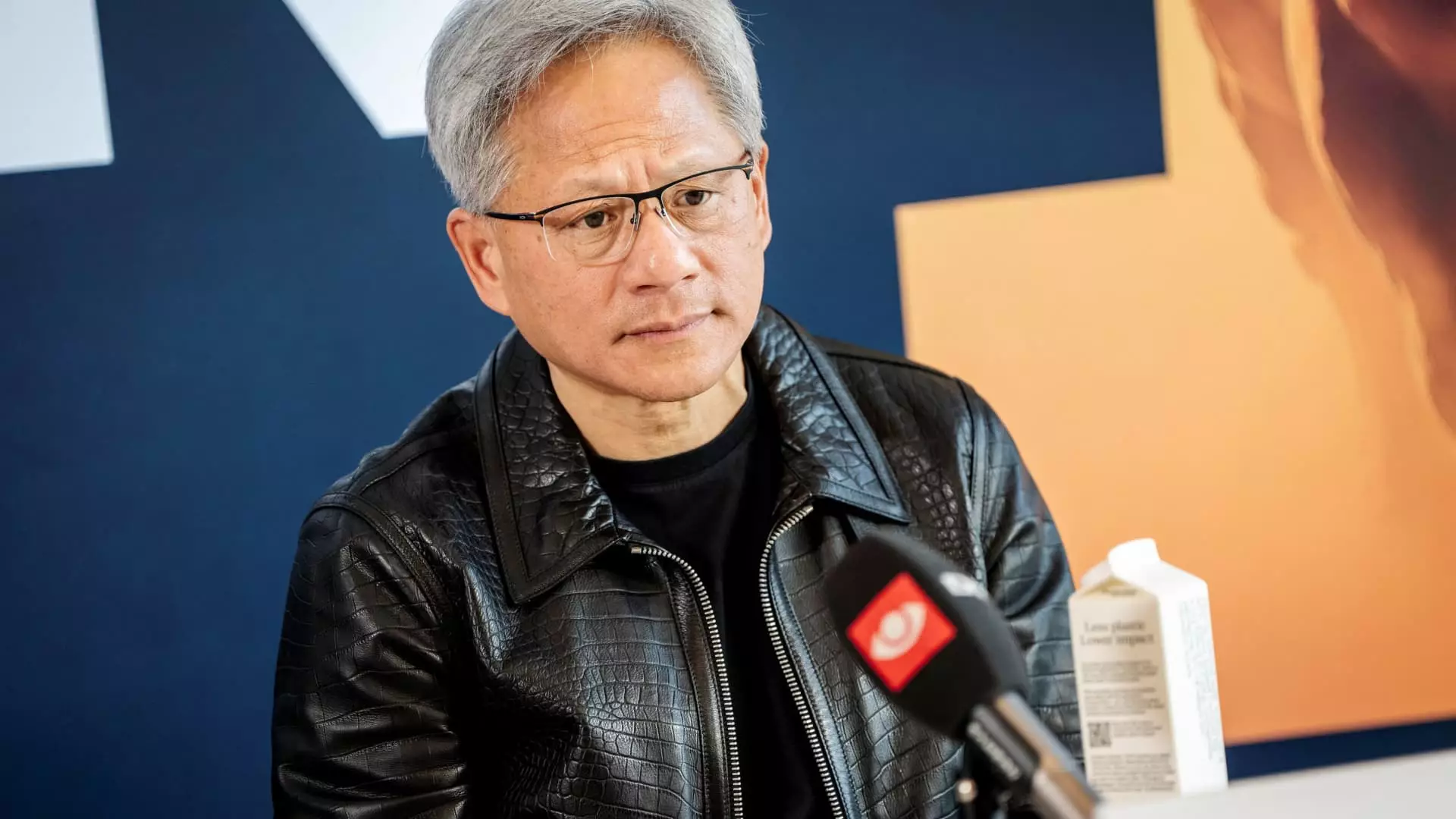Nvidia remains a titan in the rapidly expanding field of artificial intelligence (AI) chip manufacturing, commanding approximately 80% of this thriving market segment. The company has established itself as the preferred choice for graphics processing units (GPUs) essential to the development and execution of generative AI software. However, the upcoming earnings report for the third quarter has investors on the edge of their seats, pondering whether Nvidia can sustain its explosive growth trajectory as the AI boom approaches its third year.
The tech industry is witnessing unprecedented competition, yet Nvidia stands tall in an “uncharted territory,” as pointed out by HSBC analyst Frank Lee. The $3.5 trillion market cap surrounding Nvidia poses both a monumental opportunity and a formidable challenge. Investors are not only keen to evaluate Nvidia’s past performance but also to glean insights into the company’s future plans. Lee underlined the absence of signs suggesting a slowdown, and he optimistically forecasts further momentum in data center demand by 2026.
Future growth for Nvidia hinges significantly on the successful deployment of its latest generation chip, known as Blackwell. This chip has recently entered the market, servicing high-profile customers including Microsoft, Google, and OpenAI. Analysts are particularly interested in Nvidia’s assessment of Blackwell’s market demand during the earnings call. CEO Jensen Huang is expected to address this crucial topic along with reported issues concerning overheating in some Blackwell-equipped systems.
The anticipation surrounding Blackwell sales has reached fever pitch, with Nvidia initially predicting “several billion” dollars in revenue from these chips in the upcoming January quarter. Raymond James analyst Srini Pajjuri estimates that Nvidia will ship approximately 100,000 units in the fourth quarter, which falls at the lower end of investor expectations. Despite concerns, Pajjuri maintains a strong buy rating on Nvidia’s stock, underscoring his faith in the company’s long-term prospects.
Since Nvidia’s previous earnings report, its stock has skyrocketed nearly 19%, capping a remarkable journey that has seen its price soar eightfold since the launch of ChatGPT in late 2022. This unprecedented climb in share price is paralleled by a significant surge in sales and profit margins. Nevertheless, the forward price-to-earnings ratio has expanded to just under 50 according to industry insights from FactSet. While growth appears to be slowing, this trend is, in part, attributable to the heightened scale of Nvidia’s operations.
In the latest quarter, Nvidia reported a staggering 122% growth in sales. However, this figure represents a drop compared to previous quarters, where growth was recorded at 262% and 265%, respectively. Analysts anticipate the upcoming report to reveal around $33.12 billion in revenue, translating to an astonishing 83% increase year-over-year. Additionally, the consensus estimate suggests an earnings per share of 75 cents.
Notably, Nvidia’s data center segment has emerged as the cornerstone of its financial success, representing nearly 88% of overall sales in the most recent quarter. This shift has gradually relegated the company’s traditional gaming business to a secondary status. For example, Nvidia remains a critical player in the gaming industry by producing chips for the Nintendo Switch. However, with the console experiencing notable sales declines, its impact on Nvidia’s overall performance has diminished significantly.
Nvidia’s gaming revenue is projected to grow modestly by about 6%, reaching an estimated $3.03 billion, while its automotive segment, involved in supplying chips for electric vehicles, is expected to experience impressive growth of 38%, totaling around $360 million in sales. Nevertheless, these segments may not hold as much weight in the eyes of investors as the sustained growth of the data center business. As consciousness about AI applications continues to grow, Nvidia’s ability to communicate its future trajectory will prove paramount in sustaining investor enthusiasm.
As Nvidia prepares to unveil its third-quarter earnings, the focus will rest heavily on the potential of the Blackwell chip and the enduring strength of its data center business. The landscape of the AI chip market is ever-evolving, but with a robust position and forward-looking strategies, Nvidia seems poised to maintain its edge, even amid intensifying competition and operational challenges. Investors eagerly await the insights from Huang and his team as they look to gauge whether the party is indeed set to continue for Nvidia in this dynamic sector.

